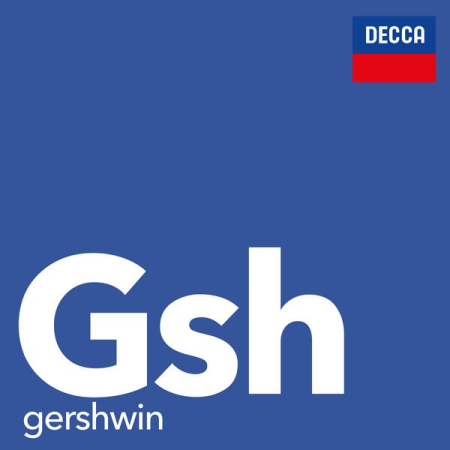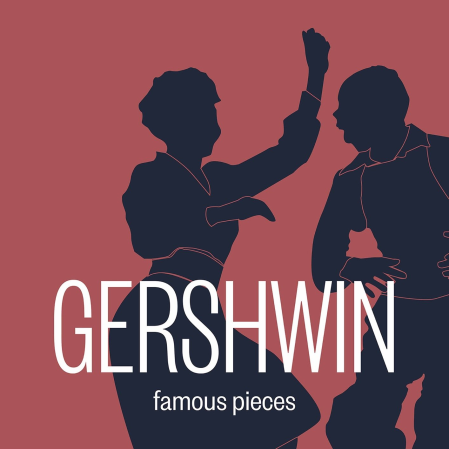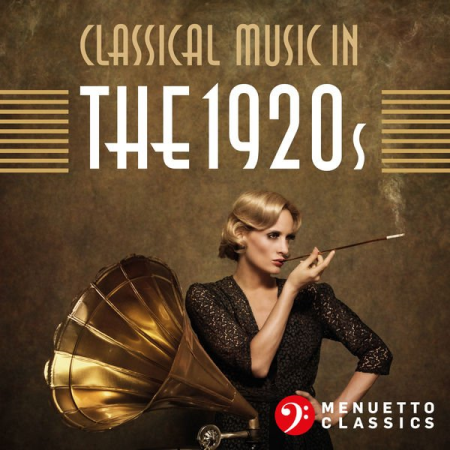VA - Bruch (2022)

FLAC (tracks) / MP3 320 kbps | Classical | 4h 49 min | 1.2 GB / 663 MB
The great musical border crosser of the twentieth century, George Gershwin excelled in the fields of concert music and popular song alike. The son of Jewish immigrants from Russia, he was born Jacob Gershvin in Brooklyn on September 26, 1898. His father ran a great variety of small businesses, and George, in the words of the New Grove Dictionary of Music, "excelled at street sports." He also studied the piano and was introduced to the European classics by his teacher, Charles Hambitzer. Gershwin immersed himself in popular music after dropping out of school in 1914 and getting a job as a salesman for the music publisher Rk. He was influenced by rag and stride piano music, and as a songwriter enjoyed his first hit in 1920 with "Swanee," recorded by the leading vocalist of the , Al Jolson. Gershwin and his brother Ira became one of the great creative teams in the history of music, each attuned to the considerable subtleties of which the other was capable. Their 1924 musical Lady, Be Good gained wide familiarity thanks to its hit song, "Fascinating Rhythm." Gershwin also wrote works for the concert hall: Rhapsody in Blue (1924), best known in an orchestration by Ferde Grofé; the Piano Concerto in F of 1925; and 1928's An American in Paris have been audience favorites since their respective prres. Probably Gershwin's most famous work was the uncategorizable Porgy and Bess; "folk opera" was an early attempt at description. Set among African-American residents of Charleston, South Carolina, Porgy and Bess includes the song "Summer," heavily recorded by both popular and classical artists. Gershwin continued to write popular songs and musicals; 1930 brought the successful show Girl Crazy and its catchy yet strikingly complex hit number "I Got Rhythm." The 1932 show Of Thee I Sing was especially notable for its crackling political satire. Gershwin went to Hollywood in 1936 to write for the RKO film studio. In mid-1937 he began to complain of headaches, but doctors chalked his symptoms up to stress. In reality he was suffering from a brain tumor; he died on July 11, 1937. The question of Gershwin's status as a classical composer is a live and productive one. Some observers have pointed out the strong resemblances between his popular and concert idioms, and it is certainly true that for all his studies of the classics over the years, Gershwin rarely wrestled with the problem of large-scale form, which one might regard as classical music's most definitive quest. His concert pieces consist of sequences of great melodies -- perhaps expected in a piece called a "rhapsody" but less impressive for music aspiring to the status of "concerto" or even "tone poem," as An American in Paris was classified. Yet it was not only the American public that loved Gershwin's concert works. They were widely performed in Europe, where they shaped the jazz inflections that began to creep into the music of such composers as Maurice Ravel. Even the proponents of the difficult 12-tone system admired Gershwin's music: Gershwin hobnobbed with Alban Berg in Paris and played tennis with Arnold Schoenberg in Hollywood. "It seems to me beyond doubt that Gershwin was an innovator," Schoenberg wrote, and perhaps history will judge Gershwin as the first harbinger of a neither classical nor popular, drawing techniques from many sources and forms of musical knowledge. Who could ask for anything more
01 Nicola Benedetti - I. Vorspiel. Allegro moderato
02 Nicola Benedetti - II. Adagio
03 Nicola Benedetti - III. Finale. Allegro eneo
04 Nicola Benedetti - 1. Adagio cantabile
05 Nicola Benedetti - 2. Scherzo - Allegro; Adagio
06 Nicola Benedetti - 3. Andante sostenuto
07 Nicola Benedetti - 4. Finale (Allegro guerriero)
08 Julian Lloyd Webber - Bruch: Kol Nidrei, Op. 47 - Adagio on Hebrew Melodies for Cello and Orchestra (Adagio ma non troppo)
09 Salvatore Accardo - Bruch: Romanze, Op. 42
10 Salvatore Accardo - Bruch: Adagio appassionato, Op. 57
11 Salvatore Accardo - 1. Adagio non troppo
12 Salvatore Accardo - 2. Recit. (Allegro moderato - Allegro - Andante sostenuto)
13 Salvatore Accardo - 3. Finale (Allegro molto)
14 Salvatore Accardo - 1. Allegro appassionato
15 Salvatore Accardo - 2. Adagio, ma non troppo lento
16 Orchestre du Gewandhaus de Leipzig - 1. Allegro passionato, ma un poco maestoso
17 Orchestre du Gewandhaus de Leipzig - 2. Adagio ma non troppo
18 Orchestre du Gewandhaus de Leipzig - 3. Allegro molto tranquillo
19 Salvatore Accardo - Bruch: In Memoriam, Op. 65, Adagio for Violin and Orchestra
20 Salvatore Accardo - 1. Allegro eneo
21 Salvatore Accardo - 2. Adagio
22 Salvatore Accardo - 3. Finale (Allegro molto)
23 Salvatore Accardo - 1. Andante con moto
24 Salvatore Accardo - 2. Allegro moderato, alla marcia
25 Salvatore Accardo - 3. Notturno
26 Salvatore Accardo - 4. Allegro eneo e vivace
27 Orchestre du Gewandhaus de Leipzig - 1. Andante sostenuto - Allegro molto vivace - Adagio ma non troppo - Allegro molto
28 Orchestre du Gewandhaus de Leipzig - 2. Adagio (Adagio ma non troppo)
29 Orchestre du Gewandhaus de Leipzig - 3. Scherzo (Vivace)
30 Orchestre du Gewandhaus de Leipzig - 4. Finale (Allegro ma non troppo)
DOWNLOAD
uploadgig.com
https://uploadgig.com/file/download/163102a39ff041b1/K3fSsdYr_Bruch_.part1.rar
https://uploadgig.com/file/download/F866af86840725c3/K3fSsdYr_Bruch_.part2.rar
https://uploadgig.com/file/download/9F66896457e0c7fC/K3fSsdYr_Bruch3_.rar
rapidgator.net
https://rapidgator.net/file/81b2a4377a3988063498c9bbde6ba890/K3fSsdYr_Bruch_.part1.rar.html
https://rapidgator.net/file/a3b9e6adb47a3d7502c2365699f8c582/K3fSsdYr_Bruch_.part2.rar.html
https://rapidgator.net/file/bd34b2921a90308e98f9bbd6cca84061/K3fSsdYr_Bruch3_.rar.html
nitro.download
https://nitro.download/view/E2DA65B9DBE25A3/K3fSsdYr_Bruch_.part1.rar
https://nitro.download/view/2972A72C55B7375/K3fSsdYr_Bruch_.part2.rar
https://nitro.download/view/3B728196EA5F9C7/K3fSsdYr_Bruch3_.rar




